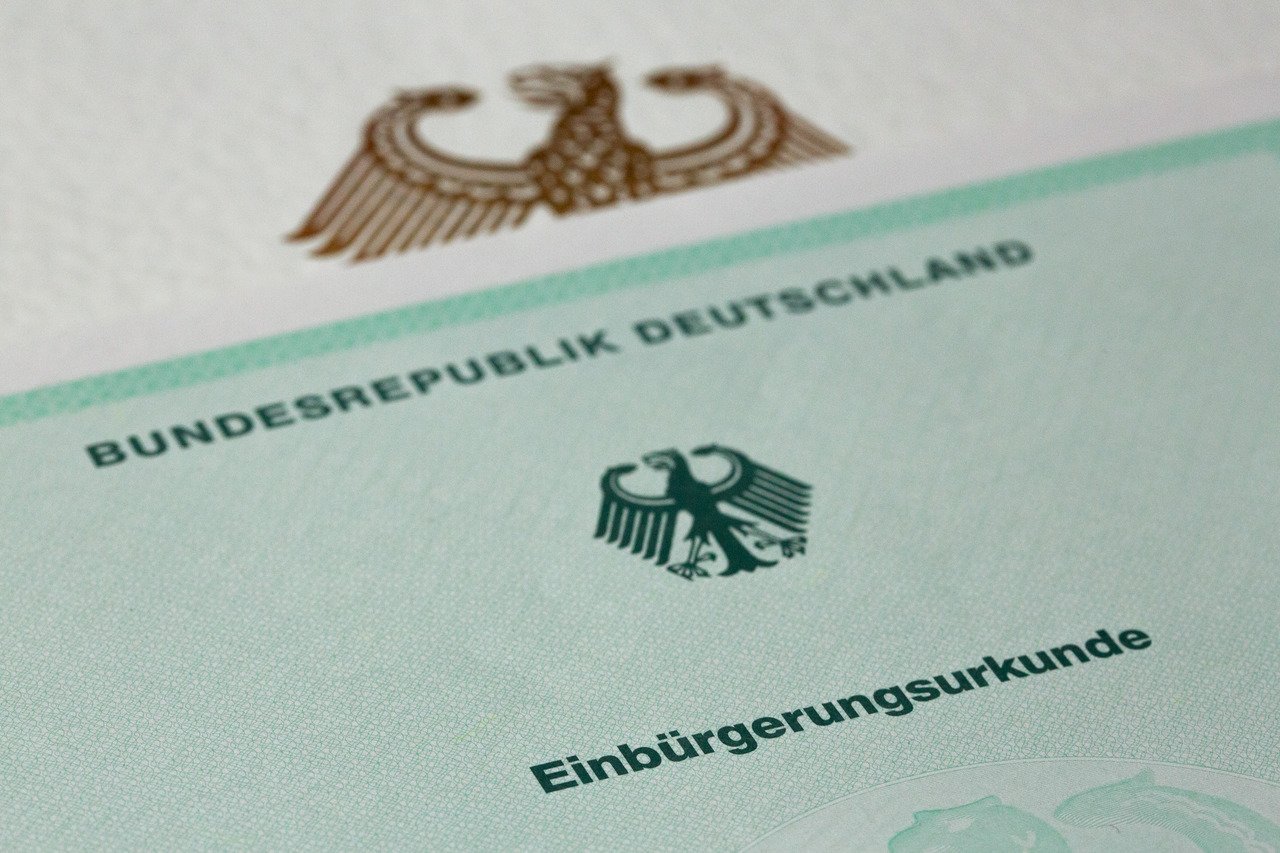As Germany braces to allow dual nationality and reduce the years of residence required for naturalisation from June 26th 2024, many foreigners in the country are already getting ready to submit their applications.
Despite the headline changes, many of the conditions for getting a German passport will remain roughly the same: as a general rule, you’ll still need to prove your knowledge of German laws and society and the German language, as well a continuous period of residence in Germany and the ability to take care of yourself (and any dependents) financially.
READ ALSO: What do I need to apply for German citizenship under the new law?
That said, there are some aspects of the new law that are designed to make it easier for older applicants – and particularly members of the guest worker generation – to naturalise as Germans, so if you fit into this age bracket, you could have any easier time once the new rules come into force.
Whether it’s exceptions to naturalisation tests or proving sufficient income, here are the key things that seniors applying for citizenship need to know.
READ ALSO: How to get a speedy response on your German citizenship application
Can I apply for citizenship while claiming a pension?
A key requirement of naturalisation in Germany is being able to cover your own living costs without relying on the state for financial help.
Luckily for retirees, a pension doesn’t count as state support, so you won’t be excluded automatically just because you’re no longer working.
That said, it’s important to be able to show that your pension – and any other income you have – is enough to cover you needs.
As SPD politician Hakan Demir said in a recent response to a parliamentary question: “If you can make a comfortable living on your pension without drawing social benefits, nothing stands in the way of your naturalisation.”
Advertisement
Of course, that does mean that people who require top-ups from the state, for example by claiming Grundsicherung (state top-ups for your pension allowance), are likely to have a harder time naturalising and may even be excluded entirely.
That’s because the new law specifically states that applicants should be able to support themselves and their financial dependents without claiming the types of social welfare detailed in the Sozialgesetzbuch (SGB) XII – including Grundsicherung.
READ ALSO: Can I still get German citizenship after claiming benefits?
There is an exception to this rule for people who have been in full-time employment for 20 out of the past 24 months, as well as carve-outs for both the Turkish guest worker generation and so-called contract workers (Vertragsarbeiter) in the former GDR.
For those in the guest worker generation, this involves having entered the Federal Republic of Germany before 1974, while contract worker status would involve having entered the GDR before 1990.
What are the new language requirements for seniors?
Proving sufficient German language skills – most commonly through a lower intermediate, or B1, test – is for most people an essential component of the naturalisation process.
In the new law, however, there are some instances in which the need to take a formal exam is dispensed with.
In the case of guest workers, who weren’t offered language or integration courses after arriving in Germany in the 1950s and ’60s, simply interacting with case officers in German is treated as sufficient evidence of language skills.

German learning resources at a language school. Photo: picture alliance/dpa | Arne Dedert
In a previous draft of the law, over-67s were also exempted from taking a formal B1 test. But government sources say that there will be no specific carve-outs that apply to everyone over a certain age.
Instead, carve-outs will be possible for people who have personal reasons for not being able to attend a language course, for example due to age, illness or a disability.
The draft states that “a hardship clause will be created for the language certificate, whereby in cases of hardship, oral skills are sufficient if the acquisition of language skills level B1… is impossible or permanently difficult”.
This applies, for example, to people with disabilities that affect their learning capabilities or those who have to care full-time for a close relative.
Do older applications still need to take a citizenship test?
In general, yes, though once again there is an exception for people from the guest worker generation and contract workers from the former GDR.
As well as eschewing formal language tests, people in these groups won’t be expected to take a citizenship test either.
Advertisement
If you don’t fit into that group but have age-related issues that may make it difficult for you to pass the citizenship test and B1 exam, or suffer from illness or a disability, you may still be able to avoid them by getting a note from your doctor or talking directly with the citizenship office.
Alternatively, you can check out our explainer for some of the other exceptions that may allow you to skip the test:
Who’s exempt from taking a German citizenship test for naturalisation?
Is there anything else that over-60s should know?
As far as most of the application process goes, older applicants are treated much the same way as younger ones and are generally subject to the same requirements.
That means that proof of income and sufficient living space, birth certificates and marriage certificates, and proof of things like health and care insurance will all be essential to your application.
If you want to naturalise with B1 German, you can do so after five years, whereas people who can prove exceptional integration (not to mention C1 German!) can apply after just three.

A certificate of naturalisation from the Federal Republic of Germany lies on a table. Foreigners in Germany should soon be able to obtain German citizenship more easily, according to plans of the federal government. Photo: picture alliance/dpa/dpa-Zentralbild | Fernando Gutierrez-Juarez
As mentioned, applicants will soon be able to keep their previous nationalities when becoming German – that is, provided your other nationalities permit dual citizenship.
READ ALSO: When and how can I apply for German citizenship?
Advertisement
One way in which rules are getting tighter is in the approach to handling previous convictions – especially if these convictions seem to have had a racist or anti-Semitic motive behind them.
According to the most recent draft of the law, “acts motivated by anti-Semitism, racism or other dehumanising behaviour” are not compatible with Germany’s constitutional order and would therefore automatically bar someone from naturalising as German.
Read More: World News | Entertainment News | Celeb News
Locals









